Victor Yalom
The art of the Psychotherapist
SEPTEMBER 7, 2022
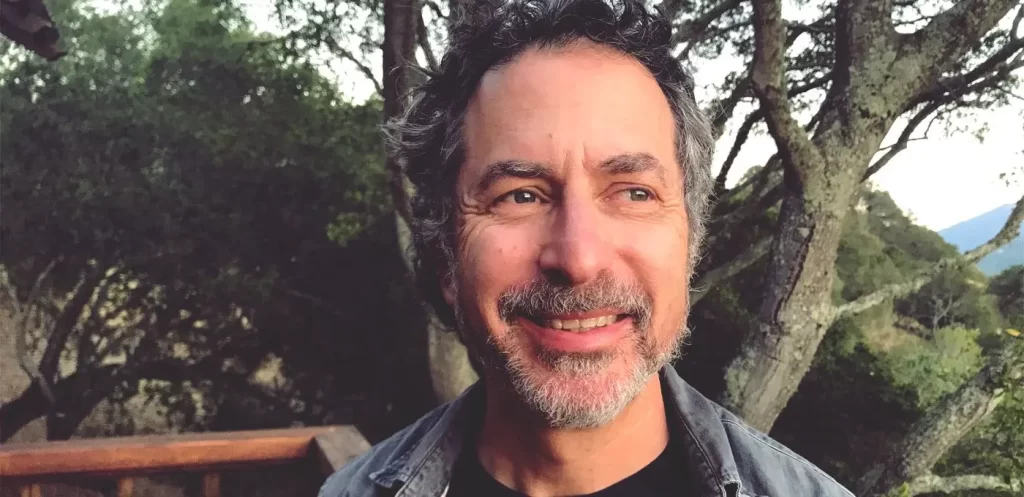
At twelve years old, I decided that I would become a psychiatrist-psychotherapist (I still want to). It sounds crazy for such a little child, I know.
When people asked me “why?” I always replied that it would be super cool to be like Dr. Kroger (Monk show) or to have a colleague like Dr. Linda Martin from Lucifer. Because they were always laughing, I was irritated and decided “to get serious.” I googled to find a therapist I liked, someone who works in the US ( that is where I want to study) .
I found Dr. Victor Yalom almost immediately! I don’t remember what I had put in the search. Surely something like: Art Therapist, amazing, etc. I couldn’t believe my luck. First of all, he is a very exciting person! He is a psychotherapist and an artist. The seriousness that psychotherapy requires is for him a painful process, but one that still allows room for laughter and joy. Without knowing Budental and “The Art of the Psychotherapist” at the time, I was thinking the exact same thing!
Dr.Yalom is an Artist Therapist! Literally! Paintings, Sculpture, Furniture, Woodworks, and Comics are his other side, and it’s not a hobby. I must definitely add the word “professional” to all of the above.
In the end, I had the incredible luck to interview him when I was 15.
Mr Yalom what fascinates you most professionally?
Well, that’s a tough question to answer. I’m not sure how to answer that. I think for now I’m gonna skip that one.
Would you recommend the videos on your website to non-professionals?
Um, the videos on my site are prof, professional therapists. Would you recommend it for non-professionals? Well, certainly they are intended for a therapist, and that’s their primary purpose. Uh, but I think if someone is interested in psychotherapy or the human condition, certainly they can learn something and hopefully, uh, find it enriching to watch the videos.
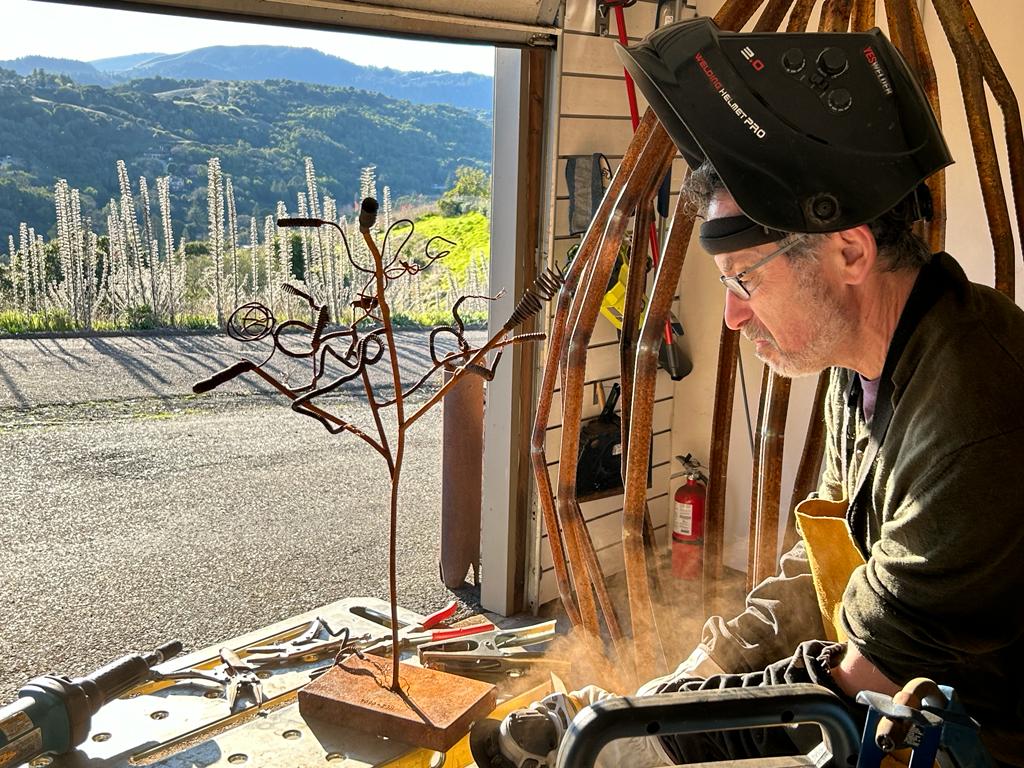
Is there a difference between a mentor and a guru
Yeah. I think there is a difference between a mentor and, a guru or someone who’s treated as a guru. Uh, I would say my father for many people, I don’t know if they deify him, but they put him on a pedestal.
Um, so I think it’s helpful to realize we’re all human. We all have her strengths and weaknesses, and someone who knows more about some topic, whether it’s, I have a table tennis teacher that I learn a lot from about table tennis, but I’m able to offer him advice and help setting up a website for his teaching. Uh, so I think we can give and take, uh, when you’re looking for a mentor, I’d say as a therapist, someone who has the personal attributes that you would look for in a therapist and therapy teacher and knows something about particular approaches or skills, but also, and this I’m sure applies to mentorship in general, can really tune into where you are in the growth or developmental process of whatever, uh, you are wanting to be mentored for. So it’s one thing for the mentor to have the particular skills or knowledge base, but equally, if not more importantly, they are attuned to you as an individual, can help you grow in the ways that you wanna grow.
When we choose a psychotherapist as teenagers, who are the most effective? Are young therapists and beginners closer to our age? Is it better for older people to choose older therapists with more life experience.
I mostly hear adults refer to their psychotherapists as if they are shamans or supernatural beings. That they have infallibility, they are 100% reliable, omniscient.
You use the terms interaction here and now. Can you explain to us what you mean? From your answer we will understand what to expect from a psychotherapist and what to reject. When do we change him?
As for psychotherapists, I don’t think it really matters. I don’t think you can make a general rule about having a therapist who matches you in age or gender or race. Um, most important thing is to have a therapist who can tune into you, seems interested in you, and is able to connect with you and you with them, and they can help you. But certainly one of the nice things about therapy, uh, is that you do benefit from life experience. So it’s a great second career for people who have done other careers, have other life experiences, uh, number two about shamans for supernatural beings. Um, right. I think it’s important to have a realistic idea of your therapist as another human being. My father, Irvin Yalom often referred to this concept as a fellow traveler. They’re a fellow traveler in the journey of life and experiencing the condition. Uh, they don’t have to be perfect and, and in fact, they can’t be perfect, but hopefully they know some things that we don’t know. And the most important thing they know is not what you should do with your life, not to be able to give you answers, but, uh,
That they have some skill in the process of human growth and awareness. That’s what psychotherapy is. Um,
In terms of, uh, the term here and now, typically that refers to what’s happening in the therapy between the people involved. So my father used this term in group psychotherapy to refer to the interactions between the group members. And that’s so important in his model of group therapy and that people can learn about their interpersonal world, their world of relationships by studying and paying attention to what happens between them and the other group members in individual therapy. The here and now refers to what happens between the therapist and the client. And, um, this can be powerful, a powerful area of focus. Uh, for example, if you have a client or you are the client who really looks for the answers to everything and others, and maybe puts yourself down, then that’s gonna happen in your relationship with the therapist. If you’re someone who’s kind of guarded or sarcastic and puts people off, that will likely happen in the therapy. So a wise and skilled therapist can pay attention to what happens between the client and the therapist and, and put a spotlight on it. And so kind of be a participant observer. You can explore with the client what’s happening, how they’re experiencing you, and how you’re experiencing them.

What happens if you dislike your client? Are you trying to like him or get rid of him? And is the second ethically correct?
If you dislike your client, well, my mentor, James Bugental used to say, if you’re a gastroenterologist, you shouldn’t complain about your patient’s bad breath, which means that if you’re a gastroenterologist, people come to you with digestive conditions that may result in them having bad breath, and that’s part of the job. So as the therapist, of course, you’re gonna like some clients more than others. Um, if you have difficulty with the client, the first thing is to try to tune in and understand what is it about that client that rubs you the wrong way? And going back to what I just said about the here and now, if they’re, uh, very distant or very cut off from their emotions, maybe it’s hard for you to connect with them. So, uh, it’s an opportunity to explore what it is that they do and what it is that’s particular to you as well that creates that block and empathy or connection. Um, so I wouldn’t say it’s something that, uh, you make a snap decision about. Now, ultimately, if you just can’t find some way to be empathic with the client and understand them, then you’re probably not the best therapist for them. And you might wanna help them find a therapist who is more empathic.

This is from cypress, with holes made from insects
In the initial email of our communication where I told you I want to be a psychiatrist you told me you better become a psychotherapist. Can you please present the reasons?
Um, um, about, uh, becoming a psychiatrist versus a psychotherapist. I know about the us I don’t really know well about other countries, but I think if you wanna be a psychotherapist, then you should train to do that. Um,
And I think the best training for that is in profession such as psychologist or counselor or marriage therapist, clinical social worker. Uh, psychiatrists get so much training in biology to get into medical school and then medical school, school, they’re learning in anatomy and, and everything about that. The one learns in medical school and then in psychiatry training, then a lot of the training is about medicine, you know, psychopharmacology. So, uh, I think if you’re really interested in becoming a psychotherapist, you’re going to get better and more training going directly into a psychotherapy profession. Uh, which is not to say some psychiatrist can be excellent therapist, of course, but, uh, you’re gonna spend a lot of time learning things that aren’t directly related to psychotherapy.
I hear people say that they want a behaviorist or existential humanist / Freudian therapist. Is there a difference that the patient can feel? Life coaching is considered a form of psychotherapy. Is it?
Are advices on social media through short quotes unknown people dangerous? People’s pursuits change according to their culture? In general, we are all human, but do cultural characteristics differentiate them?
How can Heidegger be considered the founder of the existential philosophy on which existential psychotherapy is based? He was a Nazi.
In terms of psychotherapy approaches, well, the thing is there are many different approaches, but you can’t always tell. In fact, it may be very hard to tell from watching a therapy session if you have the opportunity, what approach or orientation that therapist has. So, um, I think it’s good to study different approaches and find what resonates for you, what feels right for you in helping other people, your clients. Um, but I don’t think it’s wise to just stick to one approach. I think especially in your education, it’s good to expose yourself for to different approaches.
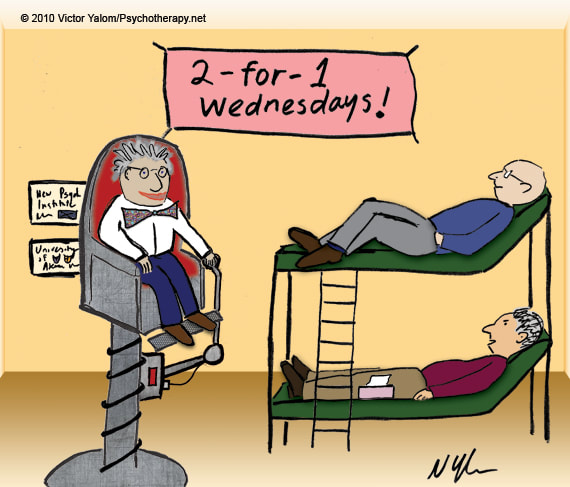
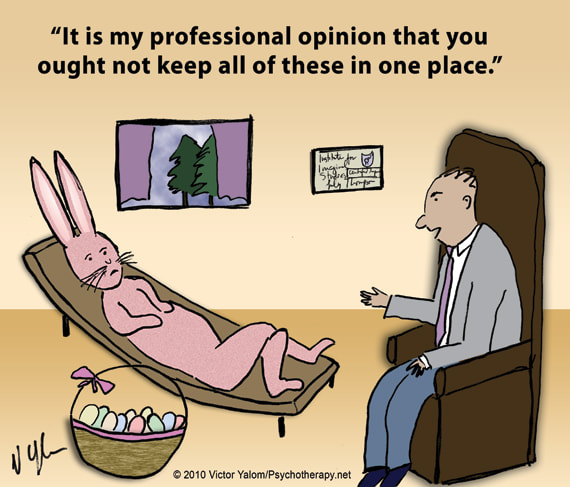
For a teenager who chooses to become a psychotherapist do you think it would be necessary to do psychotherapy himself to see his potential as a therapist and understand if he really cares?
In terms of advice for a future therapist, I think anyone who wants to become a therapist should have a fair amount of personal psychotherapy. Uh, for one, you wanna know yourself better, you wanna be comfortable with your own feelings, and you wanna know what it’s like, uh, to be a recipient of psychotherapy if you’re gonna do psychotherapy to others. And I think it’s good to have different therapists and different approaches. Group therapy, I think is a great way to learn about yourself. So, I would encourage any, would-be therapist to have experience in individual therapy and group therapy.
Why when the psychotherapist tells us something, we can understand it in 5 minutes, while when loved ones say it to us, we refuse to understand it. Since the psychotherapist, for psychotherapy to work, is like a friend, like a person who cares for us, why do his thoughts/advice have a heavier influence?
You know, psychotherapy is not about telling a client what to do. There are times it’s almost irresistible as a therapist, we see a client doing something that looks, um, like it’s going to be harmful to them. Now, we may want to tell them, but, what to do, give them advice. I think that’s fine. But I think we also understand that’s not the primary job of the therapist. The primary job of the therapist is to help the client understand themselves better so they can make better decisions for themself. Um, it’s an interesting profession because it’s, it’s one of the few professions where knowledge about yourself self, I think, is essential for you to do a good job. Uh, the only other profession I can think of offhand where self-knowledge, self-awareness is part of the training is, is when you’re training to be an actor, you need to be able to access your inner emotional life. Uh, I don’t think you need to do that to be an accountant or, uh, uh, you know, an engineer, but of course, having knowledge of yourself and knowledge of how you interact with other people is, it’s a wonderful thing to lead a fulfilling life.
Which series or movie character as a psychotherapist do you like? Not necessarily because she/he is the most persuasive, maybe is the funniest or the most creative.
Okay, well, which movie character? Uh, well, we have the series ‘’in treatment’’ here in English, which was based on an Israeli show. Uh, I think the therapist there is, is pretty good, although he is, he’s a little more restrained than I would like. Uh, I saw the Goodwill hunting with Robin Williams a long time ago, so I don’t have a good memory of it. But he’s certainly a very human, three-dimensional therapist that I think is more realistic, uh, than many portrayals. Most portrayals of therapy in movies or TV are not very realistic. They’re kind of cartoonish. Um, there’s an old movie from the probably seventies Ordinary people. Uh, again, it’s been a long, long time since I’ve seen that, but as I recall, I was one of the first portrayals of therapy in movies that seemed relatively realistic. Okay, that’s all I’m gonna have to say for now. Hope this is helpful.
Thank you this was a truly wonderful ride!
Cheers!
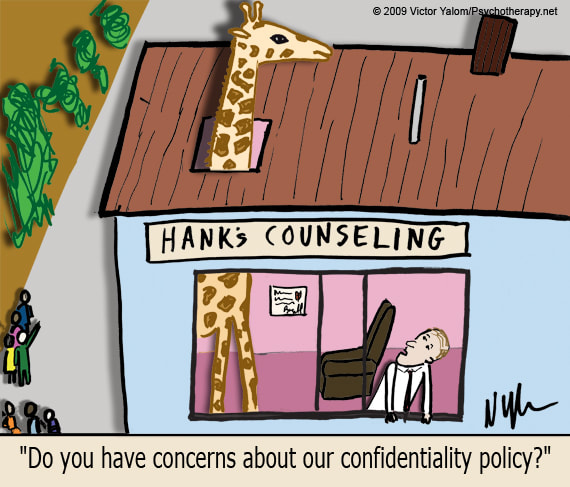
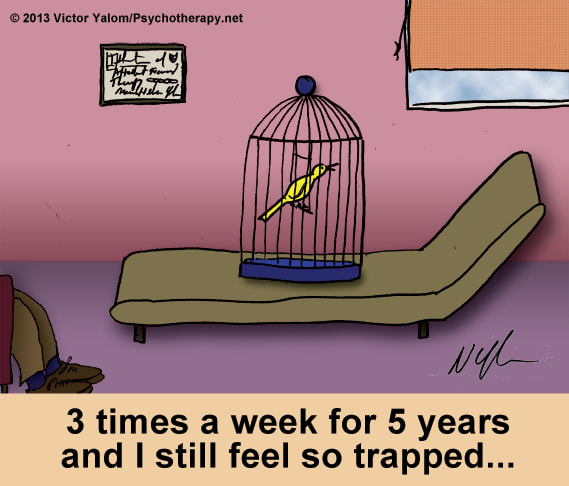
As is usually the case with therapists, you think you want them for one thing, but you need them for another. I looked for him with a reason, when I was 12, and did it again with a different motivation when I was 15.
Before the interview even took place, I was thrilled with the emails we exchanged! He was direct, clear, encouraging without formalities, and motivating!
He was so positive during the interview that even when he needed to talk to his wife, he didn’t turn off the microphone.
He gave me the final confirmation of what American therapists are like. Another boost for my aspiration to study psychiatry in America!
